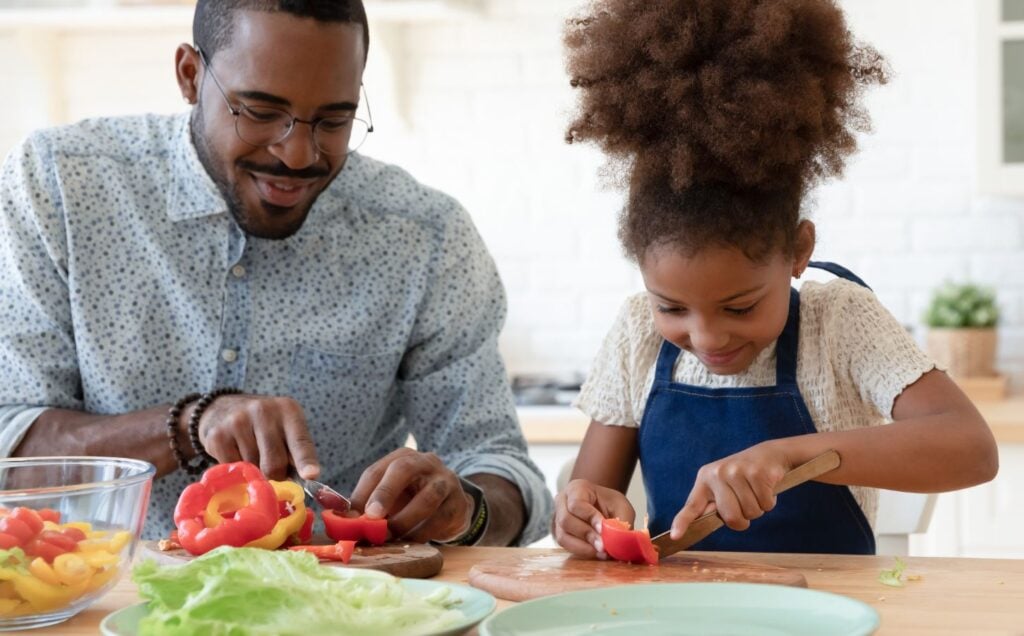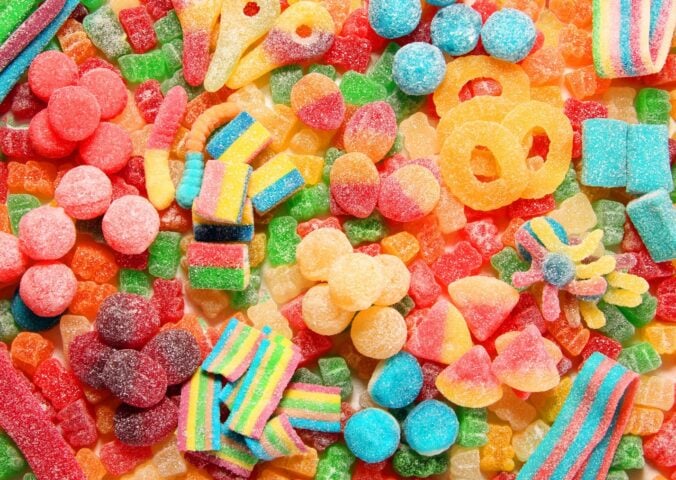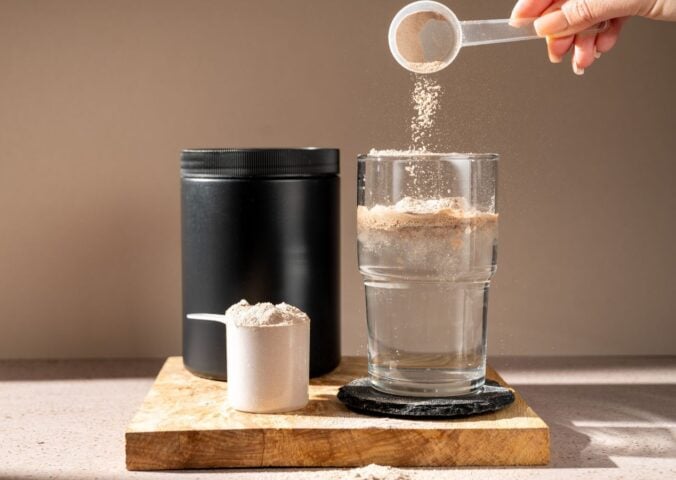Some parents and carers are concerned about whether it’s safe and healthy to feed children or babies a vegan diet. This apprehension is often heightened by news headlines that condemn plant-based eating as unhealthy and unethical for kids. Many tabloids have linked plant-based diets to negative health consequences and even the deaths of children. But these result from carers failing to provide essential nutrients – veganism itself is not to blame.
Plant-based diets can be both safe and healthy for kids. Like all parents, vegan or not, research and planning meals appropriately helps children thrive.
This article outlines what health experts say about vegan diets for children, and the risks of not providing essential nutrients. And, gives tips for planning a healthy, nutritionally complete, plant-based diet from pregnancy through to early childhood.
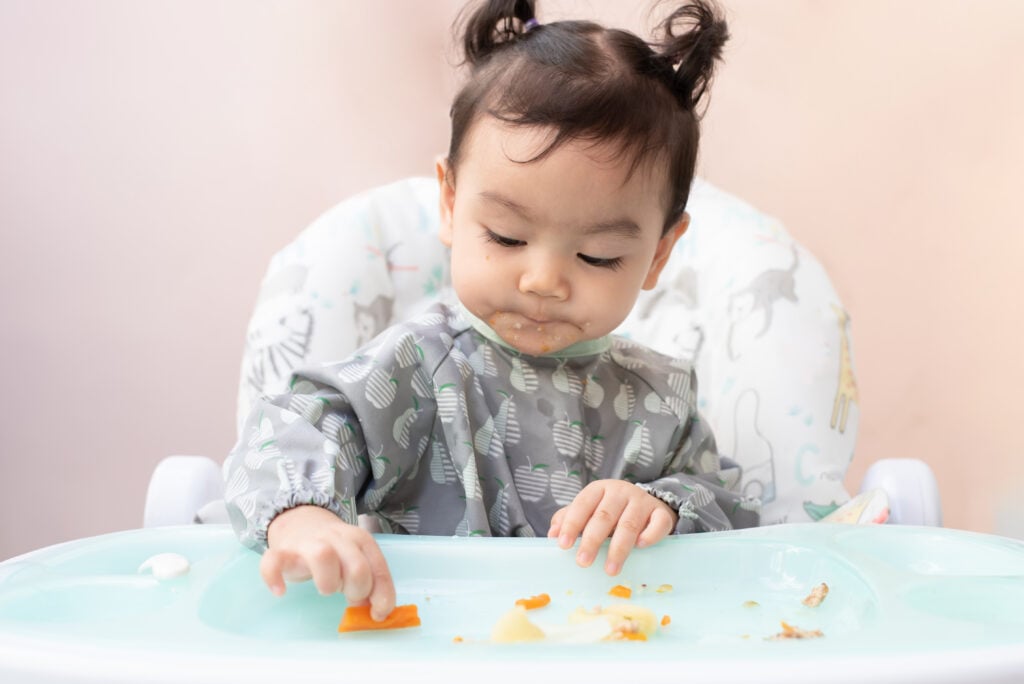
Do health organizations approve of vegan diets for children?
Sourcing health information from reputable sources is the best way to find out how to feed vegan children safely. And, to feel assured that you are doing the right thing.
Careful planning is required to raise plant-based kids, and consulting a health professional is recommended. However, medical and nutrition experts agree that a vegan diet is suitable for all ages.
Leading health organizations — such as the Academy of Nutrition and Dietetics, the European Society for Paediatric Gastroenterology, Hepatology, and Nutrition (ESPGHAN), and the NHS in the UK — advise that appropriately planned vegan diets are safe, healthy, and support normal growth and development in children.
These organizations also stress that vegans need vitamin B12 supplements. And, that carers should seek medical advice when planning their child’s diet.
Is a vegan diet safe for kids? What are the health risks?
The health risks of a vegan diet for children only occur if someone fails to plan it appropriately. One must ensure that kids – and pregnant people – get the essential nutrients they need.
The consequences of an inadequate plant-based diet for children can be severe. ESPGHAN advises that the risks of failing to follow advice for infants can result in death. Further, it stresses that vitamin B12 deficiency can cause irreversible cognitive damage.
Along a similar vein, the National Institutes of Health (NIH) highlights that breastfeeding vegans must take extra care of their B12 levels.
If a breastfeeding parent of an exclusively breastfed infant is deficient in B12, it is possible that insufficient amounts could be passed on via the breast milk. The infant’s deficiency may be more severe if the breastfeeding parent’s is. However, severe defciciencies can occur even if the parent’s own deficiency is mild and not recognized.
Similarly, for pregnant vegans who are deficient in B12, limited amounts of the essential vitamin may cross the placenta during fetal development. Undetected and untreated B12 deficiency in infants can result in neurological damage, failure to thrive, developmental delays, and anemia.
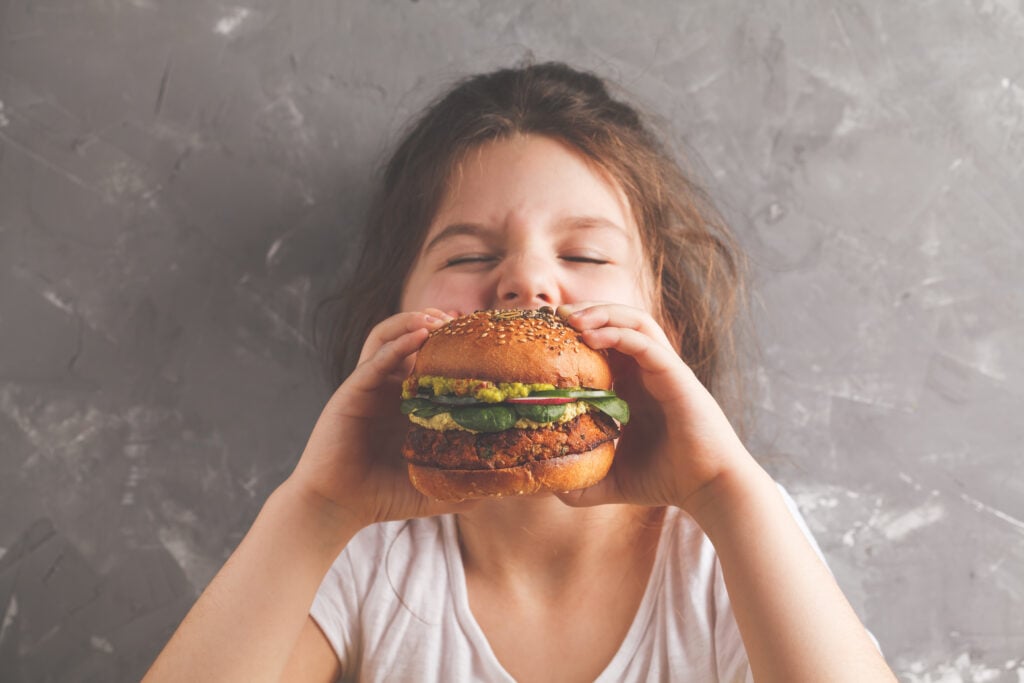
It’s therefore important for pregnant people to check their own B12 status, preferably before pregnancy. In addition, obtain adequate amounts of B12 through supplements and fortified foods throughout pregnancy and weaning.
Nutritional deficiencies
One Finnish study looked at the nutritional intake of young children with a median age of 3.5 years, six of whom were vegan. Researchers reported that the plant-based kids had lower levels of vitamin A and DHA (an omega-3 fatty acid) than the meat-eating children. They also noted that parents of vegan kids should give “special attention” to vitamin D intake. The omnivore and vegan children’s B12 levels were the same, while vegan kids had higher fiber and folate intake. Further, cholesterol levels (total, LDL, and HDL) were “significantly lower” in vegans than omnivores.
Other studies suggest that vegan kids may become deficient if their diet is nutritionally inadequate. Or, a breastfeeding parent isn’t getting enough nutrients. Generally, concerns lie around ensuring adequate amounts of protein, iron, iodine, zinc, calcium, vitamin D, and omega-3 fatty acids.
The health consequences of infant deficiencies may include slow growth, rickets, cognitive deficits, and death.
Planning a nutritionally complete vegan diet: pregnancy, breastfeeding, and young children
A well-planned vegan diet can support the growth and development of children at all stages. The following looks at what parents and carers need to know at different stages.
Pregnancy
The Vegan Society notes that optimizing your diet during pregnancy and your infant’s diet early in life can help protect their health into adulthood. It recommends that, ideally, pregnancy planning should include a review of your own diet.
Basic tips during pregnancy include eating whole foods that contain calcium and iron. Additionally, experts recommend consuming an extra 6 grams (g) of protein per day. People can achieve this by eating foods like leafy greens, beans, lentils, seeds, nuts, whole grains, and tofu.
The Academy of Nutrition and Dietetics explains that people can increase iron absorption by eating iron-rich foods with a source of vitamin C. Examples of this combination are beans and salsa, broccoli and tofu, or black-eyed peas and collard greens.
Drinking tea or coffee with food may make it more difficult for the body to absorb iron. The recommended limit for caffeine in pregnancy is 200 milligrams. This equates to a mug of filter coffee, two mugs of instant coffee, or two mugs of tea.
Vegan supplements to take during pregnancy
In addition, The Vegan Society advises people who are pregnant to take the following supplements:
- Vitamin B12: At least 10 micrograms (mcg) daily or at least 2,000 mcg weekly.
- Folic acid: 400 mcg per day of folic acid is recommended whilst someone is trying to get pregnant, and during the first 12 weeks of pregnancy to help prevent spina bifida and other neural tube defects.
- Vitamin D: 10 mcg daily of vitamin D3 from lichen (the 20 mcg vitamin D content of The Vegan Society’s VEG 1 supplement is safe for pregnancy and breastfeeding).
- Iodine: The WHO recommends an intake of 250 mcg per day for pregnancy and breastfeeding in countries where salt is not routinely iodized, including the UK.
- Omega-3 fatty acids: Vegan supplements are made from microalgae, and pregnant vegans can consider taking them. They can speak to a health practitioner about the best source and dosage of EPA and DHA, both of which are not naturally present in sufficient dosages in plant-based foods.
Breastfeeding
According to The Vegan Society, breastfeeding requires extra protein and zinc. Therefore, breastfeeding vegans must ensure their meals contain good sources. Examples include beans, chickpeas, lentils, tofu, cashew nuts, chia seeds, ground linseed, hemp seeds, pumpkin seeds, and quinoa.
During breastfeeding, experts recommend an extra 11g of protein per day, decreasing to an extra 8g once someone has been breastfeeding for six months.
The Vegan Society further advises that the calcium requirement for breastfeeding is nearly 80 percent more than the general requirement for adults. So, it is strongly recommended to include plenty of calcium-rich foods in your daily diet, such as calcium-fortified products and calcium-set tofu.
As with pregnancy, breastfeeding vegans should ensure a reliable intake of vitamin B12 from fortified foods or supplements. They should also consider an iodine and vitamin D supplement, as well as an omega-3 fatty acid supplement.
The NHS in the UK recommends that babies who are being breastfed should be given a daily vitamin D supplement from birth. This applies whether or not you’re taking a supplement containing vitamin D yourself. However, formula feeds already have added nutrients. Therefore, a person should speak to their healthcare provider to see what is safe and recommended.
First Steps Nutrition Trust notes that vitamin drops and infant formulas can contain non-vegan vitamin D. The NHS recommends the trust’s vegan infant guide for more information about plant-based nutrition and suitable supplements.
If breastfeeding is not an option, people may feed infants a soy-based formula, but they must speak to a health visitor or doctor before using it. Soy is classed as a major food allergen, so people must make sure their baby won’t react to it.
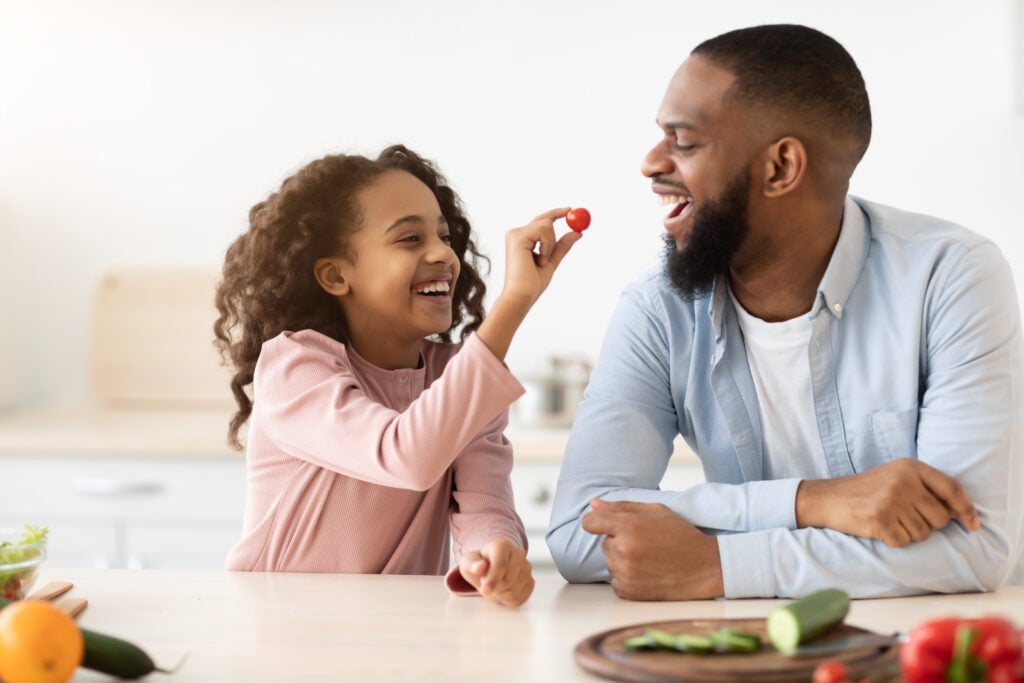
First foods
The UK government recommends all children aged six months to five years are given vitamin supplements containing vitamins A, C, and D every day. A health visitor in the UK can advise a carer about this. Babies who are having more than 500ml (about a pint) of infant formula a day should not be given vitamin supplements because their formula already contains these nutrients.
Carers should speak to their health visitor about when to introduce solid foods, although generally this is around six months. People can puree and mash first plant-based foods and include unsweetened plant milks such as soy, coconut, and oat in cooking from six months old. However, experts warn that people must not give rice milk to children under five as it contains traces of arsenic. Foods including wheat, soy, nuts, and seeds must be introduced carefully, one at a time while watching for any symptoms of allergy.
Babies and young children react differently to new textures and flavors; it often takes them between five and ten times of being offered a food to accept it. Soft fruit and vegetable finger foods can start to be included, making sure they don’t choke on foods such as whole grapes, or pips. People must never add sugar or salt to babies’ foods.
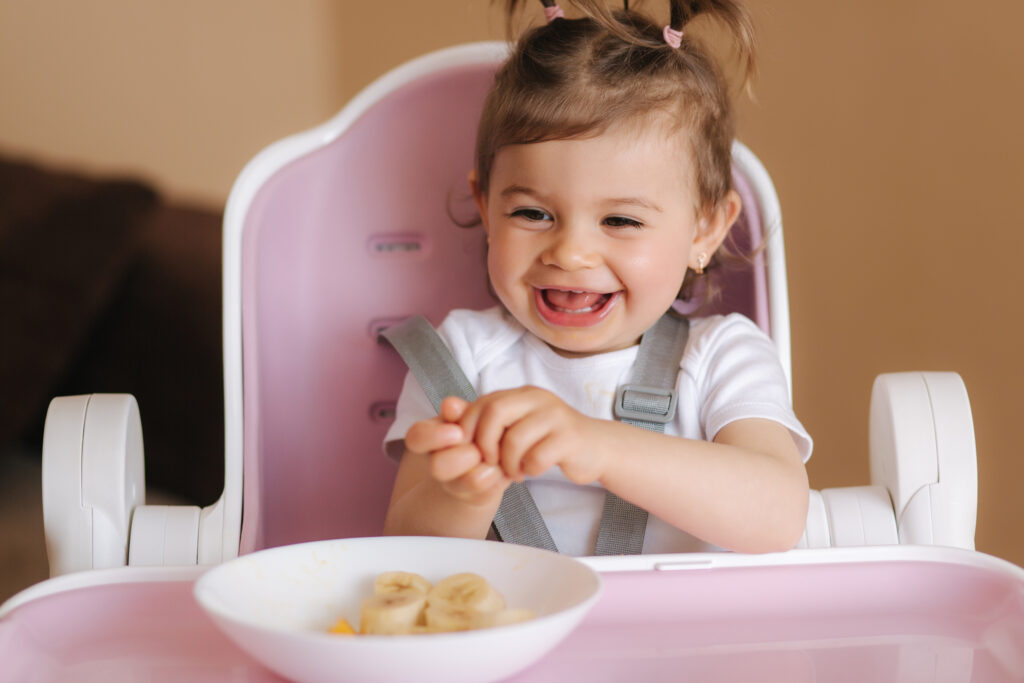
Suitable starchy foods include sweet potato, mashed rice, porridge, and other cereals. These can be mixed with breastmilk, infant formula, or a suitable plant-based milk.
A good variety of suitable protein foods such as tofu, beans, lentils, and plain vegan yogurt can be mashed and included as appropriate. If there is a family history of allergy, someone should consult a health professional before giving nuts and nut butters to their child.
Under 5s
Experts explain that young children require nutrient-dense diets that provide energy and vitamins without being bulky. Dairy products typically provide essential nutrients and calories to young children (although they are joined by potential health risks), and vegan kids may need greater amounts of plant milks to provide equivalent energy and nutrition. Concentrated sources of energy such as nut and seed butters, vegetables oils, and spreads can ensure children are able to eat the volume of food to meet their energy needs.
Eating a wide variety of foods, ensuring adequate protein, and including fortified products is recommended. Limiting sugary foods and drinks helps to prevent tooth decay and being aware of added salt in foods is essential. People should avoid giving children under five artificial sweeteners such as saccharin and aspartame, as well as drinks that contain some artificial colorings and preservatives.
The UK government recommends that children under five take vitamin drops. Guardians can speak to their healthcare provider to see which are suitable for vegans.
Examples of vegan meals for kids under 5
The following are some examples of snacks and meals that are suitable for children under five years old on a plant-based diet. Carers must consider any allergies, and make sure food is prepared safely. They can speak to a dietitian or healthcare provider for advice, or get ideas from vegan resources such as The Vegan Society.
Breakfasts
- banana porridge made with soy milk and toasted fruit bread
- gram flour “omelet” with beans and mushrooms
- nut butter on wholemeal toast
- buckwheat pancakes with yogurt and berries
Savory meals
- bean chili with rice and a side salad
- pasta with lentil bolognese sauce and a cucumber and tomato salad
- jacket potato with hummus and broccoli
- tofu and vegetable stir fry with rice or buckwheat noodles
Snacks
- breadsticks and hummus
- nut butter and carrot sticks
- pita with cannellini bean dip
- avocado and tomato on toast
How to get kids to eat more fruit and veg
New research from May 2023 found that a few small changes could encourage children to eat more fruit and vegetables. Researchers in Germany discovered that having families sit at the dinner table for an extra 10 minutes resulted in kids eating, on average, one additional portion of produce.
Additionally, serving fruit and vegetables in small bite-sized pieces and playing music chosen by kids during mealtimes increased produce consumption.
Takeaway
Appropriate planning is the main issue to be aware of when pregnant as a vegan or raising a vegan child. The risks of deficiency from not providing essential nutrients such as vitamin B12, protein, and vitamin D can be severe or life-threatening for babies and young children.
People can access reputable sources of information such as The Vegan Society online. Further, they should speak to their doctor or health provider when planning a vegan pregnancy.
Leading experts agree that well-planned vegan diets are safe and healthy for kids, and all stages of life. Therefore, if you do your research and access the appropriate advice, you can raise a child who thrives on a plant-based diet. And, may have associated health benefits into adulthood.
More like this:
- Is A Plant-Based Diet Healthy? What You Need To Know
- How To Plan A Healthy Plant-Based Diet (Tips From A Nutritionist)
- 10 Tips For Staying Healthy As A Vegan University Student
—
If you purchase something through a link on our site, Plant Based News may earn a commission, which helps us to provide our free services to millions of people each week.
